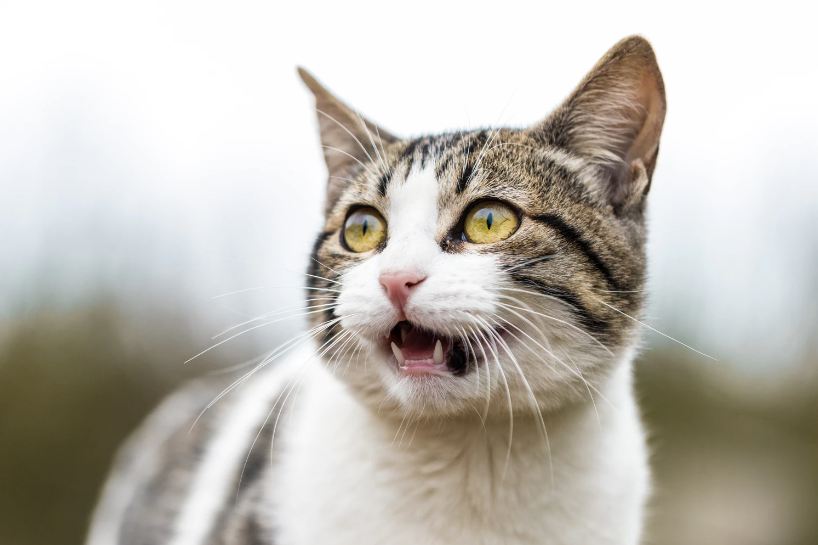We all love our pets unconditionally. By all means and definitions, they are an equal member of your household, even if the only contribution from their side is looking cute and making a mess at two in the morning. And cat lovers in particular love their pets, maybe because they’re always trying their best to appease their haughty feline overlords. As such, if a pet of ours suddenly starts behaving weirdly, it’s only expected of us to be worried.
Unlike other people, pets cannot communicate their worries to you. Cats are especially difficult to understand due to their independent nature and their tendency to spend most of the day alone. Thus, as an owner of a cat, it falls upon you to always be on the lookout for changes in your cat’s behavior and mood. Because this little window into their daily lives may be the only way for you to figure out if something is ailing your furry friend.
Prevention is Better Than Cure
We’ve all heard the popular saying, “prevention is better than cure.” Unfortunately, you can’t really do much to prevent your cat from falling ill. Unlike other people, you can’t warn your cat of what not to do or eat. Due to this, the popular saying undergoes a slight modification. When it comes to your cat, think of it as, “caution is better than cure.”
What do we mean by caution here? Well, while prevention would have meant taking measures to not get sick in the first place, we cannot really do that with our cat. Especially if we leave the house for work every day and there is no one back home to look after the cat. Instead, if you notice something in your cat’s behavior being slightly off, just get them checked instead of waiting to see if it worsens. It is better to catch a potentially dangerous illness in its infancy and have it cured, than having to spend a lot more later on for treatments to prevent fatal damage to your cat.
Lethargy Might Signal Illness
While kittens are playful little critters and a sudden decline in their active lifestyles is easy to spot, adult cats to be carefully supervised. Adult cats are much calmer than their younger counterparts, and as such may appear lethargic all the time. However, if you are close to your cat and have spent a lot of time with it, you should be able to spot additional lethargy in your cat’s behavior from a mile away.
Is your cat being extra lazy all of a sudden? Perhaps its not reacting as much as it did to you coming home from work every day. Maybe it has lost the inclination to stare out the window for hours at a time. Maybe sounds of cat food being poured into its bowl fail to elicit an excited response. Is it spending too much time just laying in a corner or on top of your couch, barely reacting to any kind of stimuli? All of these lethargic behavioral properties could signal weakness from being ill, or lack of desire to move due to pain from being sick. If you notice this heightened form of lethargy from your cat, it may very well be worth getting it checked out by a vet.
Lack of Appetite Means Business
Cats, much like dogs, love to gorge themselves. Especially if your cat is fed fixed proportions at fixed timings, your cat most likely comes happily trotting whenever it hears its food being poured into its food bowl. And of course, special treats like a piece of chicken from your plate always equal a very eager cat. Thus, a sudden lack of appetite may signal something worse.
Is your cat not eating too much? Is it perhaps not eating at all? Does it no longer come running to its food bowl when its feeding time. Is it not standing by your feet, looking up at the chicken you’re eating with nothing but love in its eyes? Is their favorite treat not enough to get them to move from their resting spot anymore? All of these could mean that your cat is ill and urgently needs to be looked at by your vet.
Vomiting or Diarrhea is a Surefire Sign
Much like us, cats tend to vomit if they’re not feeling too well. Not all vomit is an indicator of sickness however; sometimes the cat is simply coughing up furballs. Which is why you should probably only really concern yourself if your cat has vomited more than once in a short span of time. Vomiting plus lethargy or lack of appetite almost always means that your cat is sick.
And another thing to look out for diarrhea. If your cat is suddenly defecating too much, and especially if their stool is now either less solid, smells worse, or is a different color, it could mean that your cat is ill. And if your cat has started defecating in random places, that is also a sign that something is wrong. And if your cat has begun to urinate in small amounts in random places, it could mean that your cat has a urinal tract infection. All of the above-mentioned symptoms are worth getting your cat checked by the vet.
Being Less or More Vocal Than Usual
Some cats are very quiet by nature, barely ever even letting a single meow escape their lips. Others scream like banshees long into the night, making sure you and your family forget completely the meaning of a good night’s sleep. A such, if your cat exhibits sudden change in how vocal it is, it could also mean that they are sick.
If your once very quiet cat has now started screaming a lot more, especially if the screaming is mostly directed at you, it could very well mean that they are in discomfort, which can be due to illnesses and sicknesses. And if your cat that used to howl at the moon every night has suddenly become quite reserved, this could also mean an illness. Changes in vocalization signal changes in overall behavior, and these changes never happen overnight. Thus, change in vocalization merits a trip to the vet.
Difficulty Breathing, Or Discharge from Eyes or Nose
Lastly, if you can visibly notice your cat having difficulty, you know that its sick. Heavy or raspy breathing is not normal, and should be immediately looked at by your vet. Similarly, if you notice frequent fluidal discharges from your cat’s eyes or nose that accumulate on its face and need to be cleaned off, it could also mean that your cat is ill. These changes are easy to spot, and should not be ignored for long. These kinds of discharges could mean multiple things, and thus are always best examined as soon as possible before the situation can worsen.
Conclusion
As an owner of a cat, it is your responsibility to take good care of it. This fragile creature is at your mercy, and so you should never leave it suffering for too long. If you notice any of the symptoms listed above, or even if you notice something new that you think is a little off, do not hesitate to contact your vet. Your cat’s health will thank you for it. For a related post about cat care, check out our guide on caring for a sick kitten at home. And to keep kittens safe from themselves, read up on kitten proofing your home.

